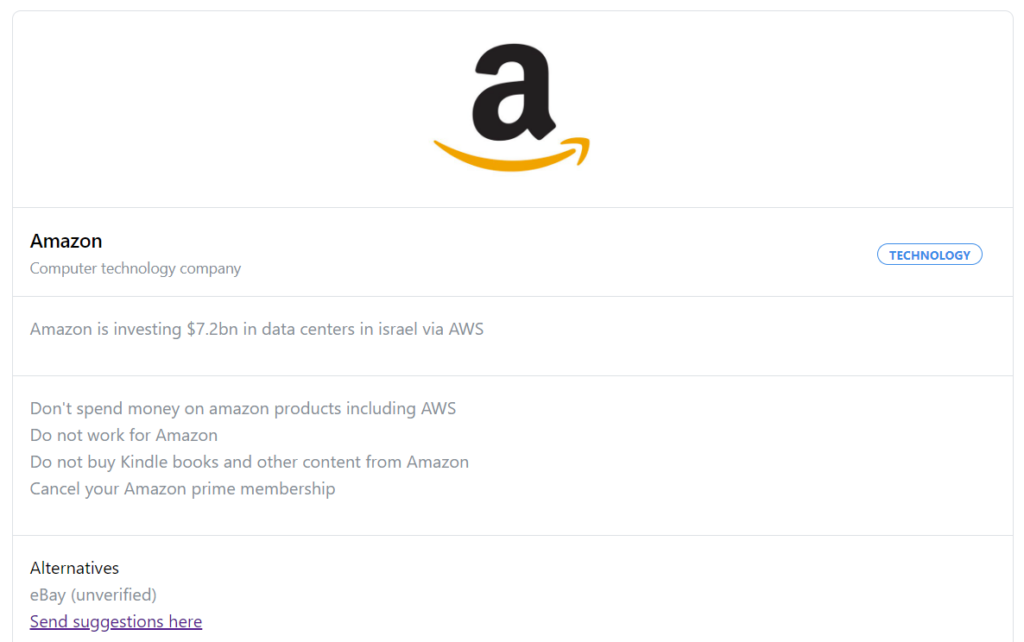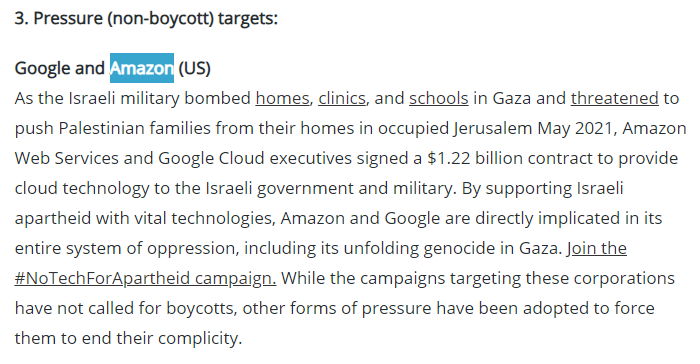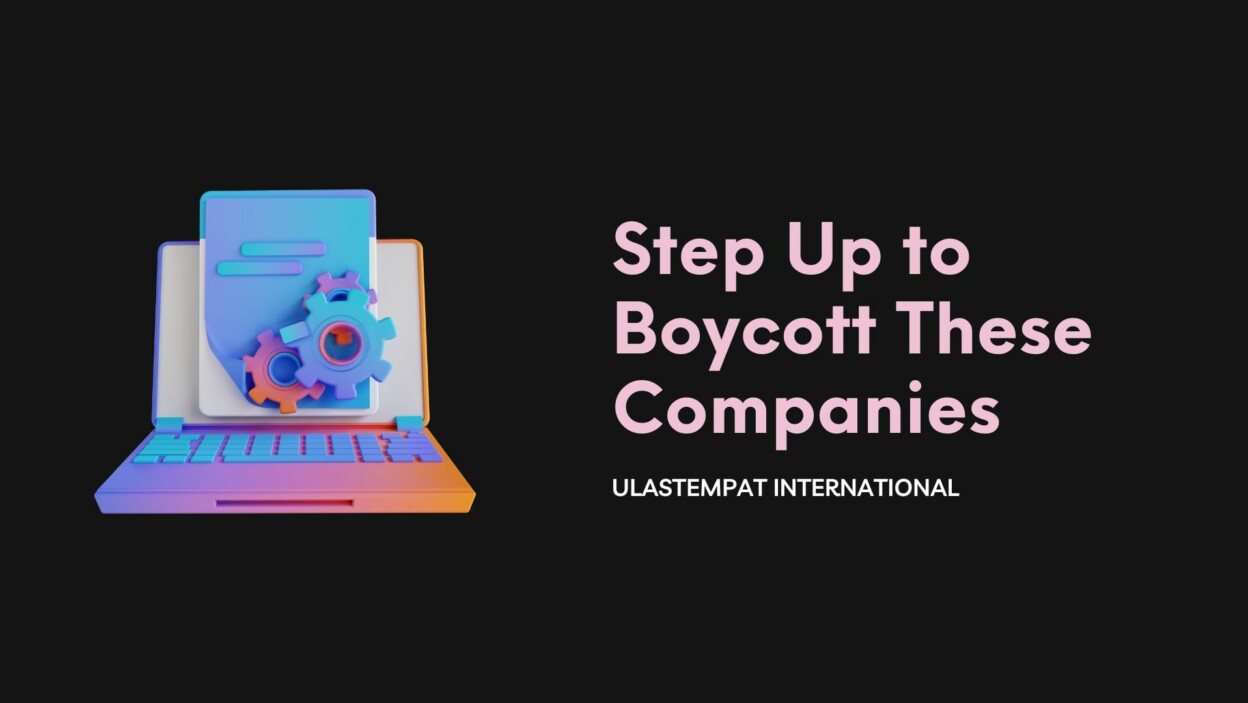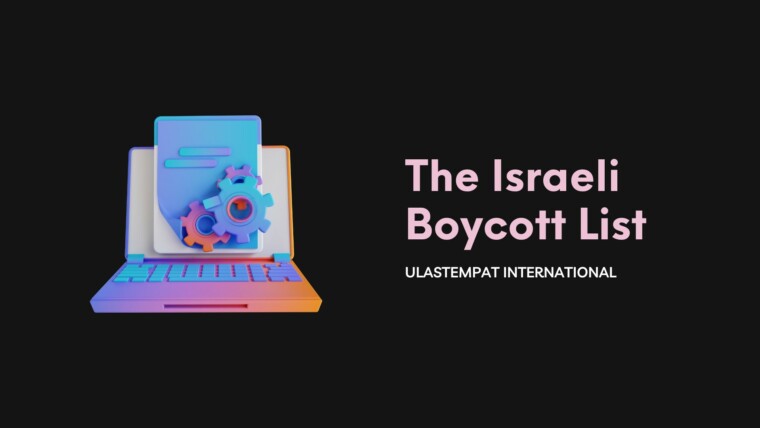In the intricate landscape of global commerce, the actions of tech conglomerates often intersect with contentious geopolitical conflicts. Amazon, a stalwart in computer technology, has come under scrutiny due to its significant investments in Israel, particularly through Amazon Web Services (AWS).
Amid escalating tensions in the Palestinian territories, the Boycott, Divestment, and Sanctions (BDS) movement has intensified calls for action against corporations perceived to support Israel’s actions. Join us as we delve into Amazon’s involvement, the repercussions of its investments, and the growing discourse surrounding corporate responsibility in contentious geopolitical arenas.

Check Out: The Oreo (Mondelez) – Israel Connection Unraveled
Amazon, a leading force in the realm of computer technology, has recently been embroiled in controversies concerning its investments in Israel, particularly through Amazon Web Services (AWS). The tech giant’s significant investment of $7.2 billion in Israeli data centers via AWS has stirred a wave of backlash, sparking calls for widespread consumer actions and boycotts.
Amidst mounting tensions in the Palestinian territories, the Boycott, Divestment, and Sanctions (BDS) movement, led by the Palestinian BDS National Committee (BNC), has escalated calls for action against corporations involved in Israel’s perceived atrocities. The movement urges individuals to refrain from spending on Amazon products, including AWS, avoid Kindle purchases, cancel Amazon Prime memberships, and avoid working for the company.
For those seeking alternatives, unverified suggestions have been made, including eBay, as a potential alternative to Amazon. However, the BDS movement’s calls primarily focus on exerting pressure through boycotts and divestment from companies seen as complicit in Israeli actions in Gaza.
The BDS movement has highlighted Amazon’s collaboration with Google in a $1.22 billion contract providing cloud technology to the Israeli government and military. This direct support, seen as enabling Israel’s actions, has drawn widespread condemnation. Specifically, Amazon’s involvement in Project Nimbus, a cloud services agreement facilitating surveillance and data collection on Palestinians, has stirred outrage within the company itself.
Hundreds of Google employees voiced dissent against the collaboration, expressing concerns over enabling Israeli occupation and unlawful data collection. Amazon’s reported profit from such military-linked contracts, specifically 63% of its profits attributed to AWS in 2020, has fueled accusations of complicity in Israel’s occupation of Palestine.
The allegations against Amazon and Google extend to the support of Israel’s apartheid system, illegal settlements, and violation of Palestinian human rights. The companies’ involvement in projects like Project Nimbus, occurring amidst international condemnation of Israel’s actions, has triggered accusations of turning a blind eye to human rights and international law.
Amidst the corporate involvement, several employees within these tech giants have faced repercussions for their dissent. Ariel Koren, a Google employee vocal about the company’s involvement in controversial projects, allegedly faced retaliation and was reportedly presented with an ultimatum regarding her employment.
Amazon, too, faced scrutiny over worker rights violations and allegations of mistreatment, highlighting a broader concern about profit-driven decisions overshadowing ethical considerations.
Explore More: A Comprehensive List of Companies Supporting Israel [Verified Proof]

The convergence of corporate involvement and geopolitical tensions, as exemplified by Amazon’s investments in Israel, underscores the complex interplay between commerce, ethics, and global conflicts. The BDS movement’s fervent calls for action against corporations tied to Israel’s actions in Palestine have catalyzed discussions about corporate accountability and ethical considerations in consumer choices.
As the debate intensifies, it amplifies the influential role consumers hold in shaping corporate practices and advocating for ethical business conduct. The BDS movement’s efforts serve as a poignant reminder of the intersection between commerce and human rights, emphasizing the need for conscientious decision-making in navigating the intricate web of global commerce and ethical responsibilities.



Does Red Bull Support Israel? Decoding the Unraveled Connection
Companies That Support Israel: A List to Avoid
Boycott List: Fashion Companies Supporting Israel You Should Be Aware Of
Fast Food Chains Aligned with Israel Support
Does These Firearms Support Israel? Exploring the Unraveled Connection
Does These Tech Brands Support Israel? Decoding the Unraveled Connection
Does These Filmography Support Israel? Understanding the Intricate Ties
Does These Online Business Support Israel? Exploring the Unraveled Connection